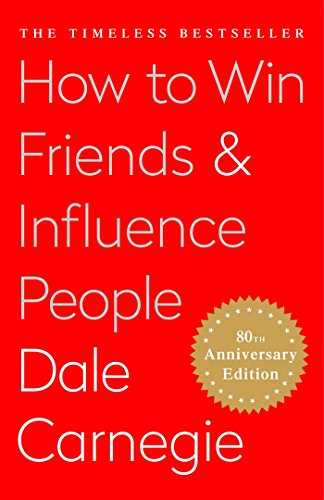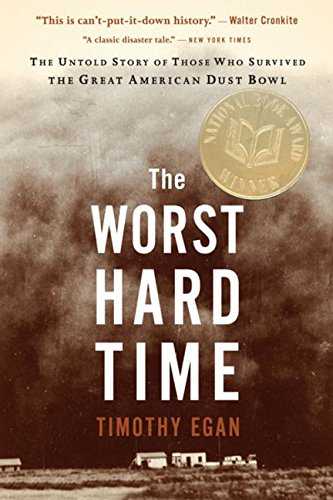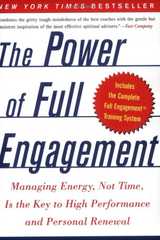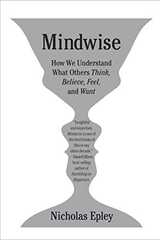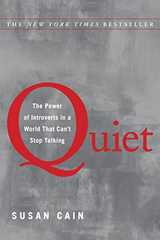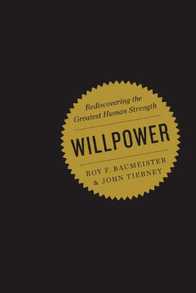
Willpower: Rediscovering the Greatest Human Strength
byRoy F. Baumeister
Willpower gave a well structured look behind how you can develop your willpower and reduce the things that drain your willpower. I found it much more direct and practical than the power of habit and more focused than the willpower instinct. I liked the science around how important glucose is to willpower as well as insights into how dieters set themselves up for failure. Willpower provides numerous experiments showing the effects of willpower & ego depletion, Baumeister's term for describing people's diminished capacity to regulate their thoughts, feelings, and actions. Relatively quick read for the value, could have been more deeper in some areas.
Motivations to Read
I was eager to turn to this book after the disappointment from reading the power of habit. In Willpower, the authors will focus more on the science so I'm excited to dive into this one. Growing up in difficult circumstance, I've developed a high degree of control of my willpower, but many others in a similar circumstance did not. Why is that?
3 Reasons to Read
- Learn how to develop your willpower to enhance your self-control and quality of life
- Find out what depletes your willpower
- Demystify willpower and common misconceptions about it
Notable Quotes
The best way to reduce stress in your life is to stop screwing up. - Roy F. Baumeister For most of us, though, the problem is not a lack of goals but rather too many of them. - Roy F. Baumeister “Monkey Mind”, a mind plagued with constantly shifting thoughts, like a money leaping widely from tree to tree. - From Buddhist Teachings
Willpower: Rediscovering the Greatest Human Strength Notes & Summary
WILLPOWER: REDISCOVERING THE GREATEST HUMAN STRENGTH
How willpower of the lack thereof, has affects the lives of many.
"The highest possible stage in moral culture is when we recognize that we ought to control our thoughts."
- Charles Darwin, The Descent of Man
The term willpower, came from the Victorians who were concerned about the moral decay in society and preached the need for "willpower", as a form of internal strength that could protect them from temptations.
People sought to increase their store of willpower by following advice from Samuel Smiles, an 19th century English Author, who had one of the most popular book's titled, "Self-Help."
There was a decline in the popular belief in Willpower after world War I and onward until the 80s.
Social scientists would look for causes of misbehavior outside of the individual: poverty, relative deprivation, oppression, or other failures of the environment or the economic and political systems.
In regards to social sciences and similar areas
Progress generally comes not from theories but from someone finding a clever way to test a theory.
Willpower Findings
- The first step in self-control is to set and establish realistic goals.
- Glucose is the fuel behind will power.
- You have a finite amount of willpower that becomes depleted as you use it.
- You use the same stock of willpower for all manner of tasks.
- Willpower is like a muscle. It can become fatigued by overuse, but it can also be strengthened on the long term through exercise.
- Orderly habits like neatness can improve overall self-control.
- Self-control allows you to relax more, as it reduces stress and enables you to conserve willpower for the important challenges.
- Simply practicing emotional control does not strengthen your willpower.
- Developing good habits and routines enhances self-control.
- Exercising self-control in one area can improve other areas of your life.
- When your willpower is depleted, you are less able to make decisions, experiencing what is called "decision fatigue".
- Use Pre-commitment to preserve willpower, as it reduces future decision making.
- People with high self-control tend to use willpower to establish new good behavior and less on already controllable behavior.
- Inner willpower leads to outer kindness.
- Willpower enables us to get along with others and override impulses that are based on personal short-term interests.
The Radish Experiment
*In an experiment of willpower, students were asked to fast and then were led into a room with freshly baked chocolate. Not everyone got to eat the cookies, they were divided into the cookie, chocolate, no food, and the radish group. The radish group could not eat the cookies, and many from the group flirted with temptation, but not took a bite.
The real test was to see how much energy was used in resisting the food from the other groups. Each group was asked to work on puzzles; which was unsolvable. Those allowed to eat cookies and those who didn't eat anything worked on puzzles for twenty-minutes, before giving up. Those from the radish eating group gave up in just eight minutes.
The group that resisted the delicious temptation of cookies and chocolate had used tired out their willpower, and were unable to put it to good use in other areas.
Ego Depletion: Baumeister's term for describing people's diminished capacity to regulate their thoughts, feelings, and actions.
Effects of Ego Depletion
- Ego Depletion results in slower brain activity in the anterior cingulate cortex, an area crucial to self-control.
- It shifts active from the control portion of your brain to the more reactive/impulsive sections.
- It leads to diminished willpower and increased cravings.
THINGS THAT DEPLETE WILLPOWER
- Stress
- Decision Making
- Low Glucose Levels
- Lack of Purpose
Uses of Willpower
- Control of Thoughts
- Control of Emotions
- Control of Impulses
- Control of Performance
Your body utilizes Glucose to fuel willpower.
Willpower and Glucose Tips
- Feed the beast- Eat as early in the day as you can before you have to make big decisions.
- Sugar works in the lab, not in your diet - There might be times when sugar can boost your self-control right before a brief challenge.
- When you eat, go for the slow burn - The body converts, many kinds of food into glucose at different rates. Quickly converted foods have a high glycemic index, i.e white rice, white bread, etc. These can lead to short bursts of glucose, but with the downside of cravings. Prefer low-glycemic foods like vegetables, nuts, select fruits, fish, meat and other "good" fats.
- When you're sick, save your glucose for your immune system - Be mindful that you may have reduced mental performance, and lower self-control when you are sick, as your body is using up it's glucose to aide in recovery. If in your control, avoid big permanent decisions in this sub-optimal state.
- When you're tired - Sleep deprivation impairs the processing of glucose. Resting, reducing the body's demand for glucose, and makes more available in the bloodstream for use in willpower activities.
Self control without goals and others standards is aimless change. For most of us the problem is not lack of goals but too many.
Self-Awareness evolved because it helps self-regulation.
Consequences of Conflicting Goals
- You worry a lot - The more competing demands you face, the more time you spend contemplating these demands.
- You get less done - You get stuck in the thought and fantasies around your goals instead of taking action.
- Your health suffers, physically as well as mentally - People with conflicting goals report fewer positive emotions, and more depression and anxiety. They got stuck more frequently, and became more unhappier as a result.
How to Build Willpower
- Know Your Limits: Your supply of willpower is limited, and you use the same resource for many different things. Each decision reduces the amount of willpower you have available to use to some degree.
- Watch for Symptoms: There is no concrete, "feeling", for when your willpower is depleted but you can spot the signs in increased impulses, less patience, shallower thought and some other out of the norm behaviors.
- Pick Your Battles: Use the calmer periods in your life to make more energy intensive decisions. Understand your limits and don't set yourself up for failure. Reflect on life and plan ahead.
- Make a To-DO List - or at Least a To-Don't List: Give yourself a plan and task for your mind to anchor itself to and relax the unconscious mind. Writing down things not to do, can also put in the necessary guardrails for your mind and effort to focus on completing a task.
- Beware the Planning Fallacy: Where we underestimate how long and how much effort something should actually take, and dash to finish in the last minute. One way to overcome this is to think about past experiences to improve your ability to plan and predict.
- Don't Forget the Basics: High stress situations or intense focus can led use to forget the basics like eating breakfast or changing our socks. Self-control is more effective if you take basic care of your body, starting with sleep and diet.
- The Power of Positive Procrastination: Procrastinators typically avoid one task by doing something else, so they can organize a list of other less important things to be done and do those instead of defaulting to entertainment. Instead of saying you can't partake in a distraction/procrastinate, tell yourself you'll delay it; procrastinate your procrastination.
- The Nothing Alternative: Use pre-commitment and implementation plans, if than rules, to stick to decisions. Make rules to focus on the one thing, and nothing else.
- Keep Track: Monitoring brings awareness and is fundamental to the success of whatever plan you make, and monitoring in of itself for a series of tasks can work even if you don't make a plan.
- Reward Often: Don't just use willpower to deny yourself things, set a goal and reward yourself for reaching it as long as the reward isn't contrary to the goal.
Monkey Mind
Buddhist image, "Monkey Mind", a mind plagued with constantly shifting thoughts, like a money leaping widely from tree to tree.
The Zeigarnik Effect
Uncompleted tasks and unmet goals tend to pop into one's mind. The unconscious is asking the conscious mind to make a plan.
The Judge's Dilemma (and the Prisoner's Distress)
Judging is hard mental work, and when done all day, their brains and bodies use up it's glucose, a crucial component of willpower. With weakened decision making decision, judges tend to be tougher on criminal sentences later in the day than earlier in the day.
Hyperopia (the opposite of myopia), in which you focus too much on the future at the expense of the present.
Narrow, concrete, here-and-now focus works against self-control, whereas a broad, abstract, long-term focus supports it. That's one factor why religious people tend to score higher in self-control that non-religious people. Non-religious people can improve from more transcendent thoughts and enduring ideals.
Alcohol doesn't increase your impulse to do stupid or destructive things; instead, it simply removes restraints. It lessens self-control by lowering blood glucose and by reducing self-awareness. It mainly affects behaviors marked by inner conflict.
Religion affects two central mechanisms for self-control: building willpower and improving monitoring.
Habit development is a way to improve willpower and religious believers work on this consistently thought praying routines, fasting or other eating restrictions, etc.
Religious people tend to feel that someone important is watching them; i.e God, some guardian, members of their community, etc.
Total abstinence takes less willpower in the long run, so it may be better for self-control than moderation.
High self-esteem acts like an emotional bank account to get you through tough periods.
Self-esteem can also turn into narcissists, the over focus on the self, grand images about one's place in the world and need to be treated special.
Self-control is more reliable than self-esteem.
We can learn a lot about self-control from video games. They teach us about setting clear and attainable goals, how to get consistent feedback from the environment, as well as the emphasis on practicing leading to improvement.
The author has some recommendations for those aiming to control their weight:
- Never go on a diet.
- Never vow to give up chocolate or any other food.
- Whether you're judging yourself or judging others, never equate being overweight with having weak willpower.
People who weight themselves everyday are more more successful at keeping their weight from creeping back up.
It's about bringing consistent attention to the habit you are trying to change.
Researchers have shown that eating while watching television/streaming increases binge eating, especially when that show or movie is engaging.
Oprah Paradox: Even people with excellent self-control can have a hard time consistently controlling their weight.
The What-the-Hell Effect
Dieters have a fixed target in mind for their maximum daily calories, and when they exceed it for some unexpected reason, they think, What the hell, I might as well enjoy myself today. The resulting binge ends up having the person consume more than if they weren't on a diet in the first place.
Dieter's catch-22
- In order not to eat, a dieter needs willpower.
- In order to have willpower, a dieter needs to eat.
To reduce the amount of time you spend controlling your thoughts use an implementation intention:
If x happens, I will do y.
The more you use this technique to transfer the control of your behavior to automatic processes, the less effort you will expend.
People with strong self-control spent less time resisting desires than other people do.
They have fewer temptations, inner conflicts and arrange their lives so that they minimize problems.
The best way to reduce stress in your life is to stop screwing up.
Also extreme procrastination is bad for your health as you put yourself in more high stress situations.
Willpower evolved because it was crucial for our ancestors to get along with the rest of the clan.Inner discipline leads to outer kindness.
Willpower had made us the most adaptable creatures on the plant, it makes each one of us strong.
